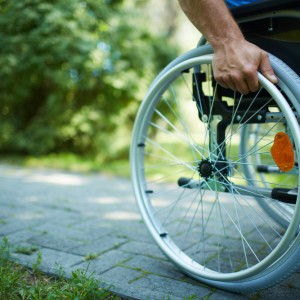Clinical Trial on the Efficacy of a Diaphragm Pacing System in ALS
Written by |

 A new Phase 2 clinical trial (ClinicalTrials.gov Identifier: NCT01938495) titled “Multi-Center, Randomized Controlled Study of the NeuRx® Diaphragm Pacing System™ (DPS) In Participants With Amyotrophic Lateral Sclerosis (ALS)” is examining the efficacy of DPS compared to standard of care in patients with ALS, a condition also known as motor neurone and Lou Gehrig’s disease that involves the death of motor neurons and progressive deterioration of voluntary and involuntary movement.
A new Phase 2 clinical trial (ClinicalTrials.gov Identifier: NCT01938495) titled “Multi-Center, Randomized Controlled Study of the NeuRx® Diaphragm Pacing System™ (DPS) In Participants With Amyotrophic Lateral Sclerosis (ALS)” is examining the efficacy of DPS compared to standard of care in patients with ALS, a condition also known as motor neurone and Lou Gehrig’s disease that involves the death of motor neurons and progressive deterioration of voluntary and involuntary movement.
The NeuRx® Diaphragm Pacing System™ (DPS) is a percutaneous diaphragm muscle stimulation technology that is implanted laparoscopically. The ends of the electrodes are channeled subcutaneously to an exit site through the chest or abdominal wall and are connected to an external stimulator. Recently the FDA gave humanitarian device exemption (HDE) approval as a humanitarian use device (HUD) for DPS, however it remains unknown if the device is effective in patients with ALS.
In this clinical trial, patients with ALS will be enrolled in either one of two study arms. Participants in the experimental arm receive The NeuRx® Diaphragm Pacing System™ (DPS) device. The intramuscular electrodes are surgically inserted in the diaphragm in patients under general anesthesia. In the standard care study arm patients receive standard medical care.
Participants must be older than 21 years with sporadic or familial ALS defined by revised El Escorial criteria; with a maximal static inspiratory pressure (MIP) <60 cm H20 or Upright or supine forced vital capacity (FVC) <50%; phrenic nerve potential should be recordable bilaterally; participants must not have taken riluzole for at least 30 days, must be capable of providing informed consent and must live near the study site.
Exclusion criteria involves an Upright forced vital capacity (FVC) ≤ 45%; prior use of non-invasive ventilation (NIV) outside of sleep; history of medical disorders that are contraindications for general anesthesia or DPS hardware implantation in the chest; patients cannot have any other device implanted nor diaphragm abnormality and they must not be enrolled in other ALS trials; cannot be under exposure to other compounds currently under clinical research for ALS treatment; pregnant or breastfeeding women and people with history or unstable conditions such as cardiac, psychiatric, hepatic, oncologic, renal disease or other complications cannot take part in the trial. The trial began enrolling participants in August 2013 and will continue to accept participants until August 2016.
More information about the study, the research sites and how to take part can be found at https://clinicaltrials.gov/ct2/show/NCT01938495?term=ALs&rank=10.





